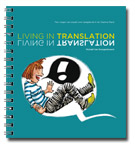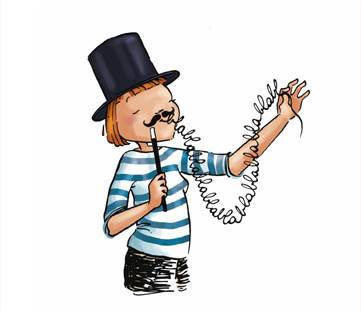4. WHAT LANGUAGE IS SPOKEN IN COMPANIES AND HOSPITALS?
Companies are allowed to use whichever language they want in their external contacts.Only the language use within the company and in official documents is regulated by law.These contacts must take place in the language of the area, although translations are always permitted and in some cases even obligatory.Hospitals too can use the language of their choice.Only in Brussels, public hospitals must be able to address their patients both in Dutch and in French.The emergency services in all Brussels hospitals must be bilingual.
COMPANIES IN FLANDERS
In businesses in Flanders, there is freedom of language use. In principle, both companies and their employees can use whatever language they want, even in their external communication. Rules are only laid down for official documents and for the language use within the company. Non-commercial companies also come under this regulation. For companies in Flanders this implies that written and oral communications by the company to the employees, as well as manuals and warning signs in the company, must be drawn up in Dutch. This also goes for official documents, such as invoices, pay slips and employment contracts. Although these documents may be translated, the Dutch version remains the only official version.
Any other communication by a company is not regulated. This communication, both oral and written, may take place in other languages. A company is thus perfectly allowed to send letters in German or receive customers in Portuguese. A company can even oblige employees to use another language. Even conversations between employees need not necessarily be in Dutch, as long as no hierarchical relationship exists between them. Strictly speaking, a boss must address his or her subordinates in Dutch, but not vice versa.
…There is also freedom of language use in advertising, as long as it concerns advertising of private companies.Advertising brochures and posters may be produced in other languages. Still, the inhabitants of the Flemish Region and the Flemish authorities appreciate it when only the Dutch language is used for advertising, because this is a token of respect for the Region.It is a matter of linguistic courtesy.Things are different for advertising that is commissioned by the authorities. Advertisements, leaflets, and radio and television commercials in Flanders must be in Dutch.…
COMPANIES IN BRUSSELS AND THE MUNICIPALITIES WITH FACILITIES
Different rules apply in Brussels and in the municipalities with facilities. These can be briefly summarised as follows:
- Only commercial companies come under the language regulation, whereas non-profit organisations do not.
- For official documents, companies in Brussels can choose between Dutch and French. These documents can also be drawn up in both languages. In the municipalities with facilities, companies use the Dutch language.
- In written communication with the personnel, Brussels-based companies must use Dutch or French, depending on the language of the employee. Bilingual pay slips are not allowed. In the municipalities with facilities, companies use the Dutch language. Translations are allowed, however.
- No rules exist for oral communication with the personnel
JOB VACANCIES AND JOB INTERVIEWS
No language rules are in force for job vacancies. Job vacancies in French or English are perfectly possible. A job vacancy is not regarded as an employer-employee relationship. Consequently, no restrictions can be imposed.
In this case, it concerns a social relationship. Strictly speaking, job interviews in Flanders must be held in Dutch, although an employer may always ‘test’ whether a job applicant speaks other languages as well.
The legislation on the language of administration applies to companies or public institutions that work on behalf of the authorities. They use the language(s) of the commissioning authority. However, local branches of a public company can only use the language of that area. These include, amongst others, the Public Transport Company De Lijn (Dutch), the NMBS/SNCB (Dutch-French-German), the MIVB/STIB (Dutch-French), BPost (Dutch-French-German), Kind & Gezin (Dutch), Belgacom (Dutch-French-German). The central service provision of these companies is in keeping with the language regulation of the authority they depend on. The postal office in Overijse, for instance, is only allowed to use the Dutch language, but the Flemish Public Transport Company De Lijn must also use French in Brussels.
HOSPITALS
Hospitals and rest homes are not legally obliged to address patients in their own language. This obligation does not apply in Brussels either, at least not for private hospitals and university hospitals. This is different for public hospitals (OCMW hospitals). All public hospitals in Brussels must be able to help patients both in Dutch and French and must be able to provide any documentation and correspondence in both languages. This reasoning also goes for rest homes. Private rest homes in Brussels are not legally obliged to use the Dutch language, contrary to public rest homes.
This rule is stricter for emergency services. All emergency services in Brussels, including those of private hospitals, must guarantee a bilingual service. Therefore, each Brussels emergency service must be able to help you both in Dutch and in French.


